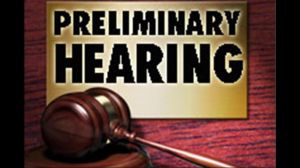
If you’ve been charged with a crime, you probably want to know what to expect from the court process. How does it work? What’s the procedure? How long do cases take to resolve?
While each county in Wisconsin has specific scheduling nuances, there are some general procedural aspects that are consistent statewide.
1. Filing of Criminal Charges
A criminal case begins when the District Attorney’s Office files with the court a document called a Criminal Complaint. That document sets forth the crimes with which the defendant is being charged, the maximum penalties for each crime charged, which determines if the crime charged is a felony or misdemeanor, and sworn information setting forth facts supporting the crimes charged.
2. Initial Appearance
The initial appearance is the first court appearance after a defendant is arrested, served with a summons, or issued a citation. At the initial appearance, the defendant is formally advised of the criminal charges filed and the amount of bond necessary to ensure future court appearances will be determined. In misdemeanor cases, a plea may be entered at the time of the initial appearance. In felony cases, a plea may not be entered until after the preliminary hearing takes place.
3. Preliminary Hearing
In every felony case, the defendant has the right to a preliminary hearing. A preliminary hearing determines whether there is probable cause to believe that a felony has been committed, and that the particular defendant in question is probably the person that committed a felony. At preliminary hearings, every reasonable inference goes to the state, meaning that so long as it is plausible that the defendant committed a felony, the matter will be bound over for trial.
Preliminary hearings must be held within 10 days if a defendant is in custody, and within 20 days if the defendant is out of custody. Often, defendants will elect to waive the time limits for the preliminary hearing to allow counsel time to prepare for the hearing. Also, a defendant has a right to waive a preliminary hearing.
4. Pretrial Conferences and Hearings
After an initial appearance in misdemeanor cases, or preliminary hearing in a felony case, the court will schedule a pretrial conference. Generally pretrial conferences are held approximately six to eight weeks after the initial appearance or preliminary hearing. By the time of the pretrial conference, your attorney will have what is referred to as “discovery” which is items such as:
· Police reports
· Photographs and videos
· Audio/visual evidence in the state’s possession
At or before the pretrial conference, the state and your attorney work to negotiate a potential resolution for the case short of a jury trial (a plea agreement). In the event that no plea agreement is reached, your case will scheduled for trial. It is very common to have several pretrial conferences over the course of your case.
At this point in the case other hearings may also be scheduled such as status conferences and motion hearings. Hearings may be conducted by a judge to determine what types of evidence will be heard by the jury should the case be tried. A status or scheduling conference may occur to determine what type of proceedings should be scheduled.
5. Trial
In the event that a case does not resolve with a plea agreement, the matter is set for trial. Trials tend to be several months (maybe even longer) after an initial appearance. All adult criminal cases have the right to a jury trial. A defendant can also elect to “waive” jury and proceed with a trial to the court. Juvenile defendants do not have jury trial rights, so every juvenile case in Wisconsin is tried to the court only. Trials can take one day or several days, depending on the nature and severity of the charges.
If a defendant is convicted at trial, the court may proceed to sentencing immediately, or may set an additional date for sentencing in the future. If a defendant is acquitted, then no further proceedings occur.
6. Sentencing
The sentencing is the final step after the defendant has been convicted at trial or has entered a guilty plea. The sentence is the punishment imposed on the defendant and is determined by the judge.
The three primary sentencing factors considered by the judge at sentencing are
· The gravity of the offense,
· The character of the offender, and
· The need to protect the community.
The state and the victim can make recommendations on what sentence is imposed on a defendant, but the judge is the final authority and decision maker. Some defendants receive probation. Conditions of probation frequently include counseling, restitution, community service and payment of court costs. Some defendants receive only a fine or are sentenced to the county jail. Others are sentenced to prison.
7.  Appeal
Appeal
After sentencing, a defendant may appeal his/her conviction and sentence. The time it takes to decide an appeal varies greatly, depending on the number of issues raised and the complexity of the case. In some cases, the appeal may continue on to the Wisconsin Supreme Court.
Unfortunately, the criminal process is a slow and arduous one. Cases can pend in circuit court for a year or more. And with covid having slowed the court system down significantly, many defendants are seeing even longer wait times to get to trial.
If you or someone you love has been charged with a crime, do not wait to contact a criminal defense attorney. Having an experience lawyer on your side will help you navigate the confusing and difficult time in your life. At Jones Law Firm we have with decades of experience. Contact us today to set up a free consultation. Please contact us by text or phone at (414) 774-6000 or email at laura@jlfwisconsin.com anytime.
*Any articles in the Libra or posted by Jones Law Firm LLC are not legal advice for a particular client or situation. Further no attorney-client relationship is intended or created with this post.*

